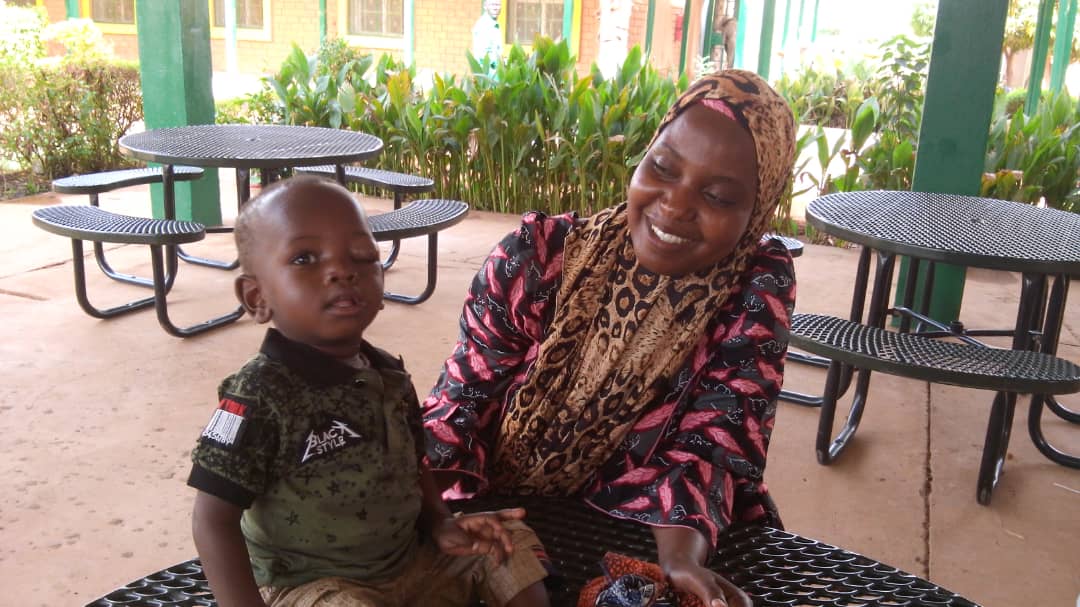Moussa in Niger
One of the tragedies of clubfoot is the wedge it can drive between family relationships. The fear and shame often cause families to point fingers in blame or simply not talk about it. When Moussa was born with clubfoot, his parents hardly spoke to each other.
?I used to avoid my husband when he was home because I was afraid to talk about our child?s feet. So did my husband,? Hassana said.
 For three weeks after Moussa was born, Hassana, a primary school teacher, hid her son and would let no one except her mother see him. Those three weeks were some of the most difficult in her life. She blamed herself thinking she was not a good mother. She even thought her husband?s former girlfriend cast a spell on young Moussa to destroy their home.
For three weeks after Moussa was born, Hassana, a primary school teacher, hid her son and would let no one except her mother see him. Those three weeks were some of the most difficult in her life. She blamed herself thinking she was not a good mother. She even thought her husband?s former girlfriend cast a spell on young Moussa to destroy their home.
Then one day Hassana met another woman whose child wore braces and asked her why the child was wearing shoes with a bar of iron connecting them. This was the first time Hassana heard about clubfoot and its possible treatment. With her newfound knowledge, she finally had the courage to speak to her husband after nearly three weeks of awkward silences.
Once treatment started on Moussa, the parent advisor at the Hope Walks partner clinic at the CURE Hospital in Niamey played a critical role making sure Hassana and her husband, Tsayabou, understood the treatment and the importance of keeping their appointments.
?His kindness encouraged me to invest more time and attention into my son?s treatment,? Hassana said.
Before Moussa was born, Hassana said she and her husband were best friends and often spent time together talking about their son?s future. Today, a relationship that could have ended is now mended. The clubfoot treatment is not only bringing restoration to Moussa?s feet, but it also is bringing harmony back into his family?s home.


